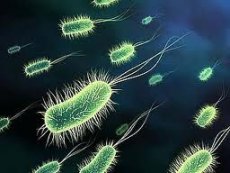Medical expert of the article
New publications
Intestinal bacteria of the genus Lactobacillus develop stress resistance and masculinity
Last reviewed: 30.06.2025

All iLive content is medically reviewed or fact checked to ensure as much factual accuracy as possible.
We have strict sourcing guidelines and only link to reputable media sites, academic research institutions and, whenever possible, medically peer reviewed studies. Note that the numbers in parentheses ([1], [2], etc.) are clickable links to these studies.
If you feel that any of our content is inaccurate, out-of-date, or otherwise questionable, please select it and press Ctrl + Enter.

Gut bacteria of the genus Lactobacillus interfere with the behavior and brain physiology of mice, making their hosts more cold-blooded, courageous and stress-resistant.
The microflora of the gastrointestinal tract includes hundreds and hundreds of species. Their work is not limited to the usual assistance in digesting food, and scientists are only beginning to understand how diverse the influence of all these microorganisms on our physiology is. As has been shown in recent years, the microflora somehow even affects the psychology and behavior of the host, and this happens either through the toxins released or through stimulation of the immune system. However, there is not enough research on this fascinating topic to say anything definitive here.
Scientists from University College Cork (Ireland), together with colleagues from McMaster University (Canada), began testing how changes in the composition of intestinal microflora affect the behavior of mice.
The researchers fed the animals broth containing Lactobacillus rhamnosus. Lactobacillus bacteria are friendly to their hosts and are the main ingredient in probiotic supplements, but their potential side effects have been little studied. The experiment showed that Lactobacillus rhamnosus had an effect on the animals’ behavior, and it was positive in every sense. Mice that were fed the bacteria for six weeks showed increased stress resistance and decreased anxiety in their behavior. The animals spent more time exploring open spaces and narrow, open “bridges” that they would normally find fearful. When mice fed the bacteria were placed in water, their stress hormone levels were lower than those of their peers in a similar situation.
Lactobacillus rhamnosus made the rodents more cold-blooded and courageous, while reducing anxiety and stress levels.
As the researchers write in the journal PNAS, at the molecular level, mice with lactobacilli showed peculiarities in the activity of genes encoding GABA receptors. GABA (gamma-aminobutyric acid) is one of the main neurotransmitters in the brain; for nerve cells, it is something like a sedative, reducing the activity of excited neurons. Many drugs for the treatment of post-traumatic stress disorder or panic attacks target cellular receptors of gamma-aminobutyric acid. The rearrangement of GABA receptors in the brain of mice with Lactobacillus rhamnosus was carried out in a rather complex way; in some areas of the brain, there were more receptors, in others - fewer, but in general, as the authors of the article emphasize, the changes led to a decrease in the level of anxiety in the animals.
All these effects are apparently carried out via the vagus nerve, which collects information about the internal organs and transmits it to the brain. If the part of it that innervates the intestines was cut in mice, no difference was observed between the mice with and without the bacteria. However, scientists cannot yet say how exactly Lactobacillus rhamnosus “communicates” with the vagus nerve.
On the one hand, this is a remarkable study that addresses the less obvious aspects of our relationships with our symbionts. On the other hand, can the effect of the Lactobacillus rhamnosus bacteria on mice be considered so positive? After all, an overly brave mouse very quickly turns into a dead mouse. Finally, the results obtained should be applied to humans with great caution, since our emotional life and our worries are more complex than mouse stress...


 [
[